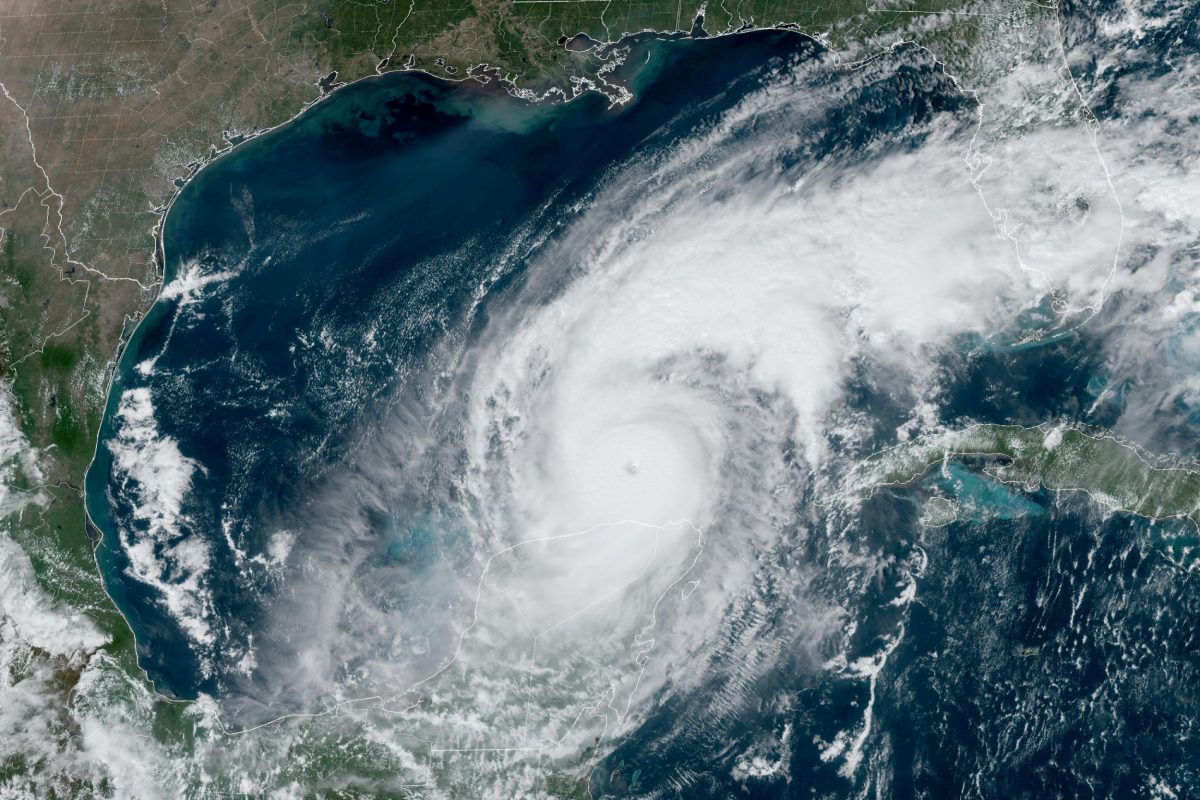This is an audio transcript of the Unhedged podcast episode: ‘Markets send mixed signals’
Katie Martin
US markets are a little bit weird at the moment. Rates markets are telling us that investors think the Federal Reserve will cut maybe six or seven more times in the next year, which generally means bad stuff is coming our way.
But stocks are still flying pretty high, even despite a flare up in geopolitical heat. Meanwhile, the latest jobs data from the US tells us that the economy is smoking hot. Today on the show we’re asking, what is with all the mixed signals and what are we supposed to make of it?
[MUSIC PLAYING]
This is Unhedged, the markets and finance podcast from the Financial Times and Pushkin. I’m Kate Martin, a markets columnist here at FT towers in rainy London. I’m expecting a decent soaking on my way home tonight on my bike. And hooray, Rob Armstrong off of the Unhedged newsletter is back by dope demand. He’s been doing some real shoe-leather reporting, as we journalists like to say, taking the pulse of the US economy. Rob, did you find a pulse?
Robert Armstrong
Shoe-leather reporting may flatter me a little bit. What I did is I went to a humongous mall in Pennsylvania and kind of looked around and talked to people and looked in stores and generally thought about things. It was more like I went on a trip to contemplate the US economy rather than actually doing any hardcore reporting.
Katie Martin
What’s your best anecdote from your time on the road talking to real America?
Robert Armstrong
That is a good question. Well, I’ll tell you this. I’ll pose a puzzle to you. So I went to this huge mall and all the stores in the mall opened at about 10 in the morning. And I was like just walking up and down this humongous mall. It’s like a mile long, there’s 450 stores. I didn’t see anybody do a transaction until like 11.45. So why did they open all the stores at 10? We put that as a puzzle to you. Is it because, well, the employees have to be there to fiddle the stock around anyway or do something? They might as well open the door in case there should be a customer. But nobody goes to the mall at 10. Why are the stores open at 10? You know, it’s a weird thing.
Katie Martin
But not every day can be like Black Friday.
Robert Armstrong
It’s true. Not every day. This was on a random Thursday, but I was quite struck by that. But man, Americans will shop. That place by two in the afternoon, the place was jumping. People were buying stuff. The American consumer, as judging by the King of Prussia mall in King of Prussia, Pennsylvania, is just fine, thanks very much.
Katie Martin
Never underestimate the American consumer.
Robert Armstrong
Never.
Katie Martin
Now then, let’s start at kind of the beginning. Is the US overheating? Because there was some scorching jobs numbers we had on Friday.
Robert Armstrong
No, it’s not overheating. I mean, the great motto of the Unhedged newsletter, there’s two mottos. One motto is calm down. And the second motto is one month is just one month. So we had like three months of very . . .
Katie Martin
OMIJOM.
Robert Armstrong
OMIJOM. That’s how we say it. OMIJOM. You know, we had three months of pretty middling job numbers. And then we did get a pretty jumpin’ report for September. But, you know, there is a lot . . . There’s a big margin for error in these surveys and, you know, as we’ve seen in the last six months or so, these numbers hop around. So until you get three strong months . . .
Katie Martin
(Inaudible) look around but, you know, this one was hoppin’, though, right? So the US added . . .
Robert Armstrong
256,000 jobs or something like that . . .
Katie Martin
I think it was 254. But anyway, that’s a lot of jobs and the unemployment rate came down to like 4.1. Just edged a little bit lower.
Robert Armstrong
Yup. And, you know, the jobs were spread around the economy — you know, it was leisure and hospitality, it was everything. So, you know, so it was a good report. And, you know, the markets really responded. And the funny thing is, before that report, everybody is like, well, there’s a secret slowdown in the economy that’s coming and what could even be a recession or whatever. There’s cracks in the edifice or, you know, a metaphor of your choice. And then we get this one report and it’s like it’s overheating. Inflation’s coming back, you know? And so it’s like we’re all over the road in terms of sentiment here.
Katie Martin
We are all over the road. And like, the thing is, though, it is quite a weird situation where you’ve got jobs numbers absolutely blasting through expectations. And it’s worth noting that July and August got revised up somewhat as well like straight after the Fed just cut benchmark interest rates by half a percentage point. And it’s like something is not right with this picture. But it also in terms of the market reaction that you just mentioned, like this is what investors are constantly saying to me, which is that the Fed is data-dependent, right? It doesn’t really have a plan. It’s responding to data points as and when they come in, which means that the market has to respond to data points as and when they come in.
Robert Armstrong
As and when they come in.
Katie Martin
Which means we’re all just getting like pinged around all over the place on every data release. And it’s exhausting, frankly.
Robert Armstrong
Yes, it is exhausting. But I think it’s the best you can do, right? What else is the Fed supposed to do except respond to the information that it has in front of it, right? I mean, I want them to take a slightly longer-term view and look at the average of several reports rather than making the mistake of getting too excited about one month. Being data-dependent is quite jarring at times, quite volatile at times. But the other option is just being an idiot, which is not as good, you know, so . . . (Laughter)
Katie Martin
Works for you.
Robert Armstrong
(Laughter) Well, I’ve done a lot of field research on being an idiot . . .
Katie Martin
(Laughter) Some real shoe-leather reporting.
Robert Armstrong
And it’s been mixed outcomes so far, Katie. Let me just say there are . . .
Katie Martin
(Inaudible) as you say. Yeah, go on.
Robert Armstrong
There are a couple of other things. No, I’m interrupting you, Katie. Don’t interrupt me while I’m interrupting you.
Katie Martin
No, go on, then. Go on.
Robert Armstrong
There are a couple of other things that are suggestive that the economy in the US and the world might be heading for faster growth. Not to say overheating, but let’s say faster growth. One thing is, at least until today, there was the first spark of excitement about the Chinese economy that we’ve had in a long time because the government said we are going to do things to make things better. And the stock market went bananas, which like affirmed this signal that maybe the Chinese government will do fiscal stimulus or something that will start this economy. So that got people excited.
And the commodities markets have followed. Copper has had a decent month though it hasn’t had a good week. Oil is up. That’s of course involving the war. But there is some sign of affirming kind of picture out there other than just one US jobs report.
Katie Martin
One of the things, though, that is really tricky to get your head around with the US is if you look at PMI surveys, right? So like kind of purchasing managers’ index surveys like where basically you go to like people who actually do real things for real companies for a living and say, how cheerful do you feel about the future?
Robert Armstrong
Do you have more orders this month than you had last month? What are your inventories? Stuff like this, yeah.
Katie Martin
Exactly. So if you look at like manufacturing PMIs are like (blows a raspberry).
Robert Armstrong
Yeah, terrible.
Katie Martin
Like, nasty; tells us like contraction is coming. It’s really horrible. Whereas services PMIs are like, woohoo, party time, you know. So we’ve got like services PMIs at like 55, manufacturing at 47.
Robert Armstrong
Yeah. And for our listeners, 50 means things are the same. Anything above 50, things are getting better. Anything below 50 means business is getting worse.
Katie Martin
It’s a little kind of arbitrary.
Robert Armstrong
So why is manufacturing getting worse? It does seem weird. Ever since the pandemic, we’ve had weird changes in goods demand, right? Because for a while, we were all locked in the house and we ordered so many goods — so many Pelotons, so many air fryers, so many, you know, because what could you do?
Katie Martin
I never got into this air fryer thing but tell me I should.
Robert Armstrong
Yeah. I don’t even know what it is. Yeah. People have them. You can’t fry with air, you know. It’s stupid. Anyway.
Katie Martin
This is a hill I’m prepared to die on.
Robert Armstrong
(Laughter) Anyway, and then it’s like, now you have all the stuff you need, right? So then, you know, you had too much goods demand and then not enough. And so I wonder if we’re still dealing with kind of waves of too high and then too low goods demand that is affecting manufacturers.
Katie Martin
So we’ve like bricked ourselves into our own homes with Pelotons and air fryers and other such nonsense.
Robert Armstrong
Yeah. And we’re still in the like, now let’s go do the things we couldn’t do phase four years later, like, you know. And also like maybe it’s just the United States is ever becoming more a service-driven economy. I mean, that’s the most obvious explanation.
Katie Martin
Yeah. It’s all about going out for dinner and going to bars and I don’t know, whatever it is you Americans do with your spare time.
Robert Armstrong
Yes. Though that’s about it.
Katie Martin
Go and watch American ball sports.
Robert Armstrong
Go to the mall, we go to the bar. OK. Let me throw another weird variable into the equation. If you ask Americans, how’s the economy, which the University of Michigan has done every month since the 1950s, Americans say it’s crap, which is partly weird and partly not. So if you look at the history of the University of Michigan Consumer Sentiment survey and you superimpose over it inflation, inflation really makes people feel bad about the economy. And although inflation is gone in terms of price growth, we’ve had a big shift in the price level. Everybody’s pissed off. That’s normal. But in the past, when sentiment has been as bad as it is right now, we have not only had inflation, but we’ve had stagflation. We’ve had inflation tied closely or loosely to, you know, recession and job losses. And right now we have the opposite. So it’s like we don’t care. We’re so pissed off about inflation. We don’t care about how strong growth is or how many people are employed. We’re still pissed off, right?
Katie Martin
But even though people are like pissed off about inflation, which I get, the evidence is that Americans are still spending, right? Household consumption is like back to pre-Covid trends for the US where it’s not in the UK . . .
Robert Armstrong
100 per cent. Saw it at the mall.
Katie Martin
It’s not in the UK. It’s not in Europe. So I just don’t understand what is with this like weird thing with Americans at the moment where they’re like, everything’s going great, the economy is absolutely like roaring and people are determined to be cross about it.
Robert Armstrong
They’re cross but, you know, when we are feeling bad as Americans, you know, we go shopping to console ourselves. I think that’s as simple as that. Like, you know, if a humongous flat screen TV isn’t gonna make you feel better, you know what is? But no, I mean, I joke and this is a cliché, Americans are just consumers, blah, blah, blah. But it is striking that Americans are shopping like they are happy or consuming like they are happy. But when asked whether they’re happy, they say no. And of course, this will be important in the upcoming election.
Katie Martin
Are you happy, Rob? We want you to be happy.
Robert Armstrong
I’ve never been happier. I’m feeling great. I feel great.
Katie Martin
(Laughter) But so what are markets supposed to do with all that? So since we had those like super soaraway jobs numbers a few days ago, some of those rate cut expectations have come off a little bit so the market is saying, OK, maybe we don’t need quite so many rate cuts because maybe we should cheer the heck up.
Robert Armstrong
And actually, there has been a big change in the two-year Treasury yield. And as you know, Katie, but our listeners may not, any time you say the phrase two-year Treasury yield, you have to append the phrase “Fed policy-sensitive” to your yield.
Katie Martin
Policy-sensitive two-year.
Robert Armstrong
Yeah. Then it just comes as one phrase. So, you know, the two-year yield tells you what the market is thinking about what Fed policy is gonna be. And the two-year yield has gone way up. Last time I looked, it was a hair under four. It had been at like three-six or three-five. And so what that’s telling you is people saw this jobs report and they were like, whoa, whoa, whoa, we may not get all these rate cuts we thought we were gonna get, right? Maybe the Fed doesn’t have that much room to cut because if they cut much more than they already have after they went and did 50 last month, 50 basis points, they’re gonna get an inflation surprise, right? So they’re gonna find out. They’re like, oh yeah, we’re going back to three or whatever they predict is the long-term rate. They might not get all the way down to three. Something bad might happen on the way, specifically a bad inflation thing.
Katie Martin
So we’ve got a situation where stocks are doing well because rates are gonna fall, but rates probably aren’t gonna fall quite so much.
Robert Armstrong
Yes. That’s what the two-year is telling you.
Katie Martin
So, I mean, I can’t square the circle. I really can’t. Someone’s wrong somewhere. It’s probably me.
Robert Armstrong
No, someone is wrong. Probably us, someone on the internet. Someone somewhere is wrong. I mean, the thing that is unsettling about this is that stocks are just sort of bouncing along at all-time highs. And you sort of wonder if we were wrong to expect as many rate cuts as we did. If we are wrong to think that inflation was gonna come down as easily as we thought it was, surely something about the valuation of stocks has to change. But every time I say sentences like the one I just said, stocks laugh in my face and proceed to go higher. So because you would that . . .
Katie Martin
I’m not sure we’re helping people much here, Rob. (Laughter)
Robert Armstrong
And I think part of it is, you know, we’re starting earnings season, Katie, so we’re gonna find out. We have the banks this week. We’re gonna start finding out whether stocks can perform well enough in terms of earnings that the stock market can stay high.
Katie Martin
Show me the money, corporate America. That’s what I say. I mean, is this . . . How normal is it for consumer sentiment to just like split away so much from actual spending?
Robert Armstrong
Let’s talk about it in terms of unemployment, which is kind of a tidier number than consumer spending. If you look at a long-term chart of consumer sentiment against the unemployment rate, the lines go generally, historically in the opposite directions. Low unemployment, high consumer sentiment.
Katie Martin
That makes sense.
Robert Armstrong
Right? And that is a pretty consistent pattern through history, as you might expect. The first step to being happy in a capitalist economy is having a job. Since the pandemic, almost uniquely right now, we’re experiencing a moment where we have historically low unemployment and sentiment is still lousy. It’s new. And I don’t know. Maybe that’s normal five years after a big pandemic. Maybe we’re still getting over the sting of inflation and things will normalise soon. But this combination of a very low unemployment rate and . . . I should say that consumer sentiment is getting better. It’s not as bad as it was in 2022 when it was like the worst it’s ever been. But it’s still quite low and it’s not trending better very quickly. This is a strange combination historically, and I’m not sure what to make of it. I have no tidy explanation for it.
Katie Martin
You have to come up with one. You know, that’s your homework for next week.
Robert Armstrong
OK, next week I’ll have a grand unified theory of consumer sentiment and unemployment prepared for you.
Katie Martin
I look forward to that. You can start thinking about that now. We’re gonna be back in a sec. But first, while we’ve got you, listeners. We’re very excited to have been nominated for a Signal award. Rob Armstrong, did you hear that?
Robert Armstrong
I am delighted but not surprised. I think we deserve to get a pile of awards that’s 10ft tall.
Katie Martin
Well, look, if this is your favourite finance pod — listeners, I’m sure it is — then there’s a link in the show notes. Check it out. Click the button. Vote for us. We’d be very grateful.
[MUSIC PLAYING]
We’re gonna be back in a sec with Long/Short.
[MUSIC PLAYING]
Katie Martin
Okey-doke. It is time for Long/Short, that part of the show where we go long a thing we love, short a thing we hate. Rob, what you got — long or short?
Robert Armstrong
I am short Spirit Halloween. Now you, Katie, as a person from a strange island in the middle of the North Atlantic will not know what Spirit Halloween is. But Americans will know. Spirit Halloween is a store that shows up only at this time of year. If you need your affordable pizza rat costume, New Yorkers will know what that one is. You can grab it at Spirit Halloween.
And I’m not short this business. I have no idea whether it’s a good business or a bad business, how much money it makes. But I am short any place this spooky store shows up. Because if there is a space in your neighbourhood for a Spirit Halloween, it means there is vacant stores and the rent is cheap and you know, at the last minute Spirit Halloween can just rock up and say, I’d like your building for a month or whatever.
So the weird thing is, this spooky store actually is an economically spooky event when it appears. So the big spooky Grim Reaper motto guy who’s on the sign in front is actually an economic Grim Reaper in reality.
Katie Martin
On a similar note, I am long monsters.
Robert Armstrong
Great!
Katie Martin
So as you mentioned earlier, Chinese stocks had a bit of . . . They’ve had a bad day because like the second round of information coming out of like authorities in Beijing around what the stimulus . . .
Robert Armstrong
Yes. The previous announcement in which we said we were going to save the world was not true.
Katie Martin
Yeah. Well, so the markets initially went crazy like that, just felt like stocks absolutely shot higher. Today we were supposed to get like more information around what the authorities were gonna do. Markets didn’t particularly like the look of that. It wasn’t detailed enough. So like some of the stocks in like China and Hong Kong fell really hard. The reason I bring up monsters is because we had a quote in our story about this from one Alicia García-Herrero from Natixis who said, and I quote, “This is what happens when you feed the monster. Every day you need to increase the amount of food or it turns against you”. And I thought that was quite apt. So I’m long monsters.
Robert Armstrong
I have twin 16-year-olds and I endorse that phrase.
Katie Martin
(Laughter) The thing with children is you need to feed them.
Robert Armstrong
Constantly. Every time it’s more, you know.
Katie Martin
Yeah. They’re a real drain. Anyway, on that on that cheerful note, let’s wrap up. We, listeners, will be back in your feed on Thursday because it’s Tuesday today, yes? So it’ll be Thursday. So listen up then . . .
[MUSIC PLAYING]
Robert Armstrong
Yes. By which time the economic narrative will have changed completely. So we’ll have plenty to talk about.
Katie Martin
Either Rob will have figured it out or it will all have changed again and then we don’t need to bother. So for that sort of insight and more, tune in again on Thursday. We’ll see you then.
Unhedged is produced by Jake Harper and edited by Bryant Urstadt. Our executive producer is Jacob Goldstein. We had additional help from Topher Forhecz. Cheryl Brumley is the FT’s global head of audio. Special thanks to Laura Clarke, Alastair Mackie, Gretta Cohn and Natalie Sadler.
FT premium subscribers can get the Unhedged newsletter for free. A 30-day free trial is available to everyone else. Just go to ft.com/unhedgedoffer.
I’m Katie Martin. Thanks for listening.
[MUSIC PLAYING]








































































































































You must be logged in to post a comment Login